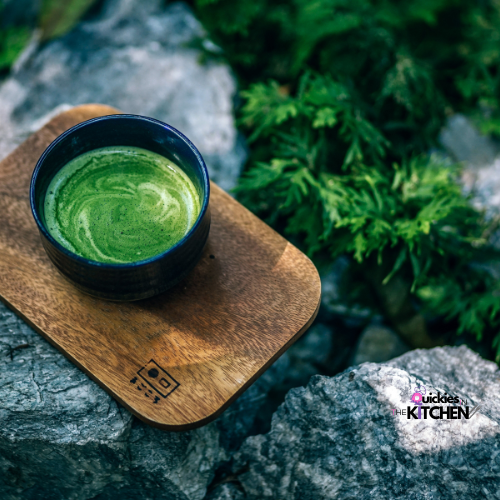Matcha, a finely ground powder made from specially grown green tea leaves, has become a popular health trend in recent years. Known for its vibrant green color and numerous health benefits, it has gained a devoted following. One question often arises: does matcha have caffeine? The short answer is yes, but the details behind its caffeine content and how it affects your body are worth exploring.
Caffeine Content in Matcha
Unlike traditional brewed green tea, where only the infusion of the leaves is consumed, matcha involves consuming the entire leaf in powdered form. This makes matcha a more potent source of nutrients and caffeine. On average, 1 teaspoon (about 2 grams) of matcha contains around 70 milligrams of caffeine. To put this into perspective, a typical cup of brewed green tea has about 30-50 milligrams of caffeine, while a cup of black coffee contains around 95 milligrams.
Caffeine in Matcha vs. Coffee
While matcha does contain a significant amount of caffeine, its effect on your body is different from the caffeine in coffee. The reason lies in matcha’s unique composition, particularly its high concentration of an amino acid called L-theanine. L-theanine promotes a state of calm and relaxation, which balances the stimulating effects of caffeine. This results in a more gradual, sustained release of energy that lasts longer and avoids the typical jittery feeling or caffeine crash associated with coffee.
How Matcha’s Caffeine Affects You
1. Sustained Energy: Because of the presence of L-theanine, matcha provides a smoother, longer-lasting energy boost. The effects of matcha’s caffeine can last for several hours, making it an excellent choice for people who need sustained focus.
2. Mental Clarity and Focus: The combination of caffeine and L-theanine also enhances concentration and cognitive function. Matcha is often associated with a calm, focused alertness that is ideal for tasks requiring mental clarity, such as studying or working.
3. No Jitters or Crash: Unlike coffee, which can cause rapid spikes in energy followed by a crash, matcha’s caffeine is released more slowly into the bloodstream. This steady release helps avoid the common pitfalls of coffee drinking, such as anxiety, jitteriness, and energy slumps.
Conclusion
Yes, matcha contains caffeine, but its unique combination of caffeine and L-theanine sets it apart from other caffeinated beverages. With about 70 milligrams of caffeine per cup, matcha provides a moderate amount of stimulation, but in a smoother, more sustained way. If you’re looking for a way to stay energized and focused without the jitters or crashes, matcha could be an excellent alternative to coffee or other energy drinks.
References
• Smith, K. (2022). The Caffeine Content of Matcha Tea. Healthline.
• Johnson, R. (2020). How L-Theanine and Caffeine Work Together in Matcha. The Journal of Nutritional Biochemistry.

